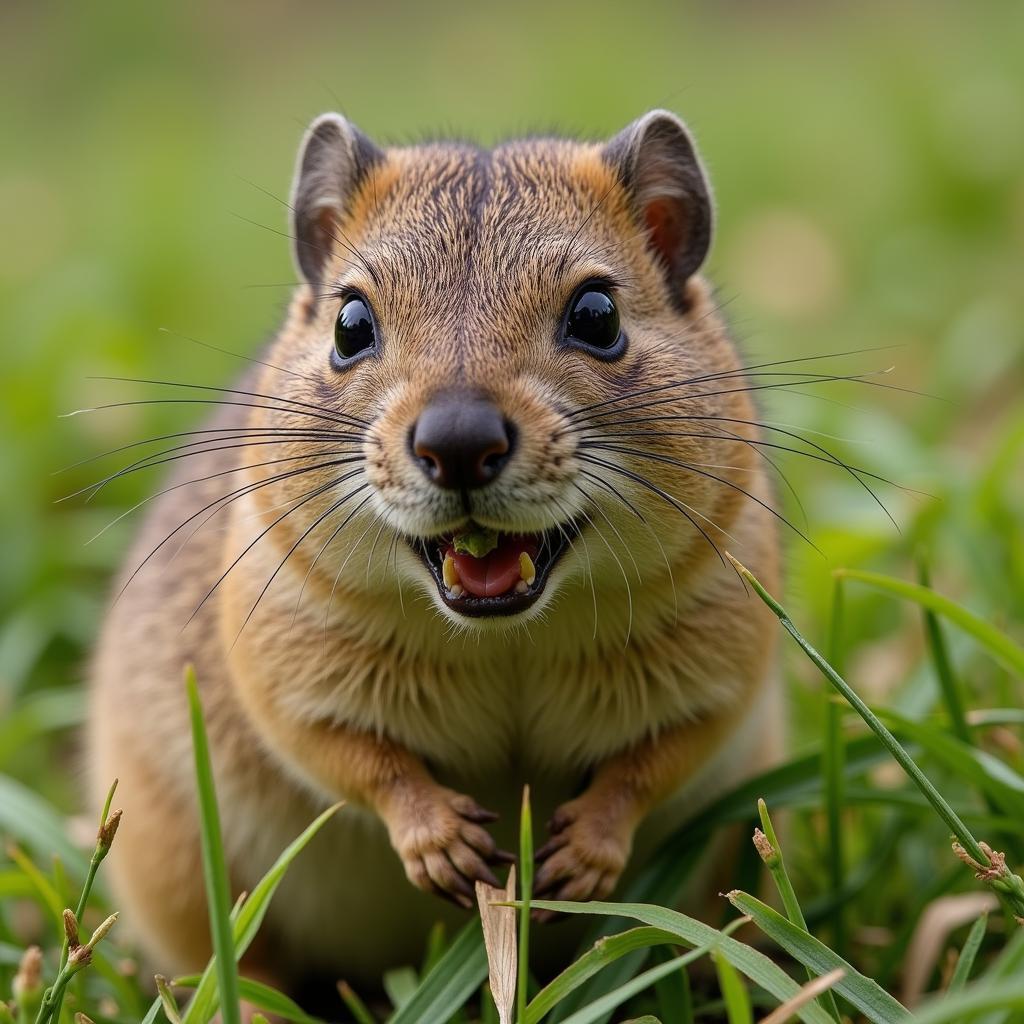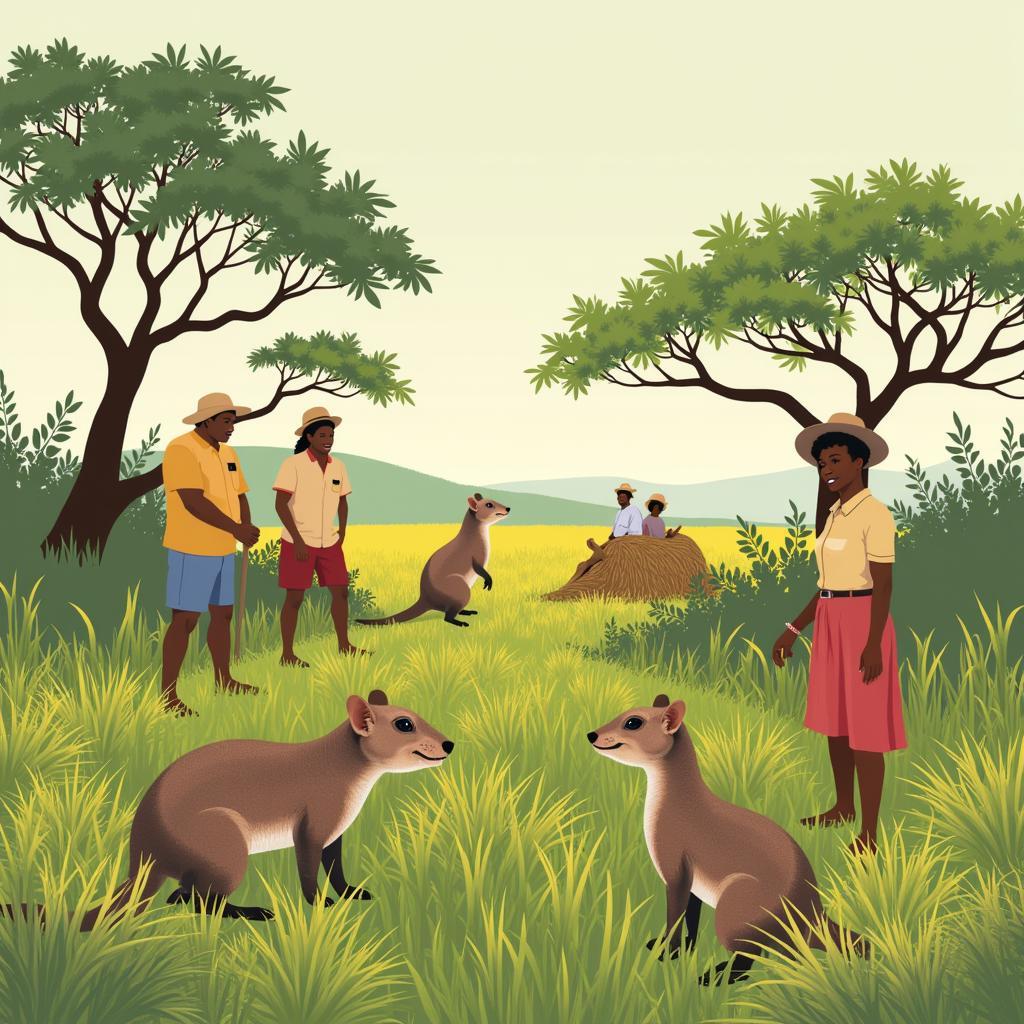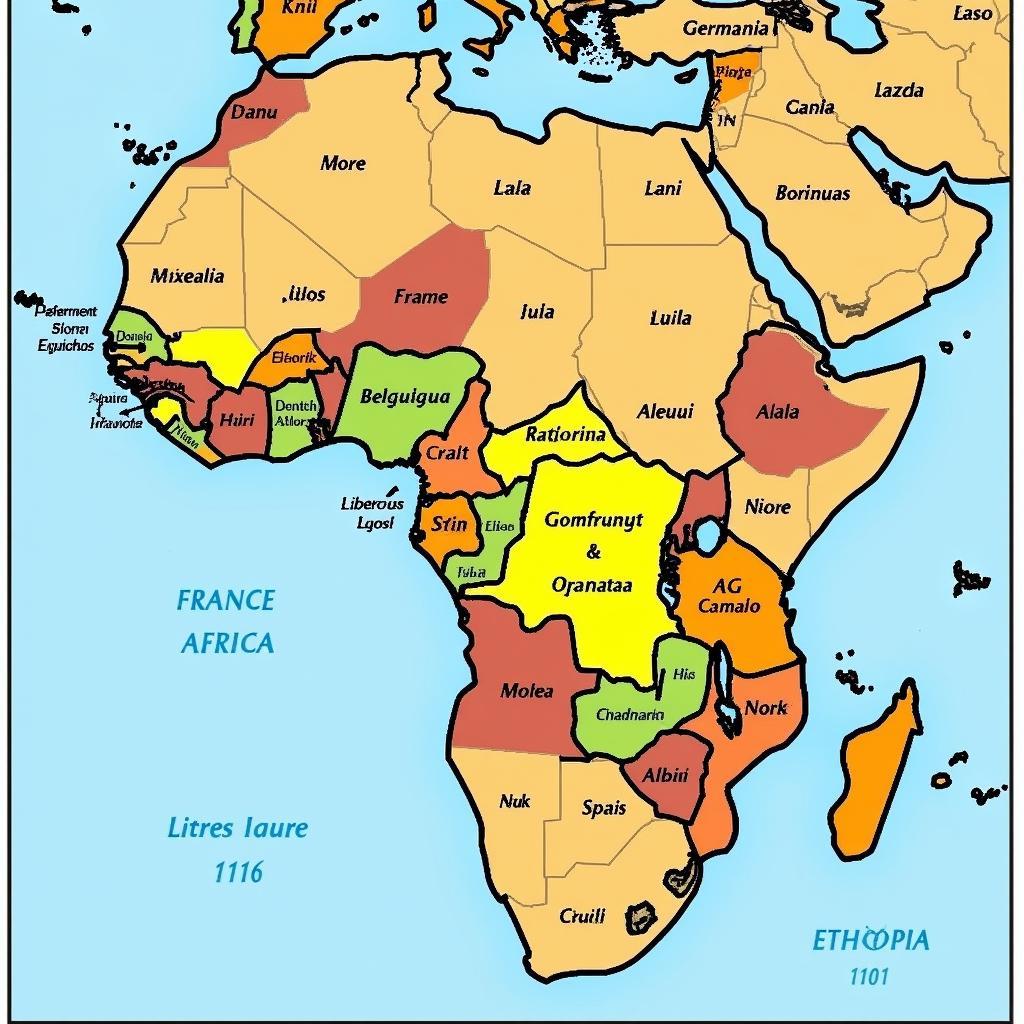The Amazing African Grass Cutter: A Comprehensive Guide
The African Grass Cutter, also known as the greater cane rat, is a fascinating creature native to sub-Saharan Africa. These large rodents play a significant role in local ecosystems and have become an increasingly important source of food and income for many communities. Let’s delve into the world of these unique animals.
Understanding the African Grass Cutter
Habitat and Distribution of the African Grass Cutter
African grass cutters thrive in a variety of habitats, from grasslands and savannas to wetlands and forests. They are highly adaptable and can be found across sub-Saharan Africa, demonstrating a remarkable resilience to diverse environments. Their widespread distribution highlights their ecological importance. These rodents are particularly fond of areas with tall grasses, which provide both food and shelter.
Physical Characteristics and Diet
African grass cutters are notably large rodents, often exceeding the size of a domestic cat. They have short, coarse fur that varies in color from reddish-brown to grayish-brown. Their robust build and powerful incisors allow them to efficiently consume their primary diet of grasses, but they also enjoy other vegetation, fruits, and even bark. This adaptability in diet contributes to their survival in various environments.
 Close-up View of an African Grass Cutter
Close-up View of an African Grass Cutter
The African Grass Cutter’s Role in Society
African grass cutters have increasing economic importance, particularly in rural communities. African gemstone traders often diversify their income by trading in grass cutters, as these rodents represent a readily available and sustainable protein source. Their meat is considered a delicacy in many regions, contributing significantly to food security.
Farming and Domestication
The increasing demand for grass cutter meat has led to a rise in farming and domestication efforts. This practice provides a controlled environment for breeding and raising the rodents, ensuring a sustainable supply of meat and reducing pressure on wild populations. Farming also presents income-generating opportunities for local communities.
Cultural Significance
Beyond their economic value, African grass cutters hold cultural significance in some African societies. They feature in traditional stories and beliefs, often symbolizing resourcefulness and adaptability. This cultural connection further reinforces the importance of these animals in the lives of many African people.
Conservation and Challenges
While African grass cutters are not currently considered endangered, habitat loss and overhunting pose potential threats to their populations. Sustainable harvesting practices and conservation efforts are essential to ensure their long-term survival. Understanding their ecological role and promoting responsible management are crucial for preserving these fascinating creatures.
Conclusion
The African grass cutter is more than just a rodent; it’s a vital part of the African ecosystem and a valuable resource for many communities. From its ecological significance to its economic and cultural importance, the African grass cutter deserves our attention and respect. Sustainable practices and continued research are essential for ensuring the continued prosperity of this remarkable species.
 African Grass Cutter Conservation Efforts
African Grass Cutter Conservation Efforts
FAQ
- What is the average lifespan of an African grass cutter? (Typically 4-5 years in the wild, and potentially longer in captivity.)
- Are African grass cutters aggressive? (Generally docile, but can bite if threatened.)
- What are the main predators of African grass cutters? (Snakes, birds of prey, and larger mammals.)
- Can African grass cutters be kept as pets? (While possible, it requires specialized care and understanding of their needs.)
- How does grass cutter farming benefit communities? (Provides a sustainable food source and income generation.)
- What are the challenges facing African grass cutter populations? (Habitat loss and overhunting.)
- What can be done to protect African grass cutters? (Promoting sustainable harvesting practices and supporting conservation efforts.)
Dr. Abimbola Adebayo, a renowned wildlife biologist specializing in African rodents, emphasizes the importance of sustainable harvesting: “Maintaining the balance between utilizing the African grass cutter as a resource and ensuring its long-term survival is crucial for both the environment and the communities that depend on it.”
Professor Chike Okeke, an expert in sustainable agriculture at the University of Nairobi, adds: “Grass cutter farming offers a promising solution to meet the growing demand for protein while empowering local communities economically.”
Need assistance? Contact us at Phone Number: +255768904061, Email: kaka.mag@gmail.com or visit us at Mbarali DC Mawindi, Kangaga, Tanzania. We have a 24/7 customer service team.




